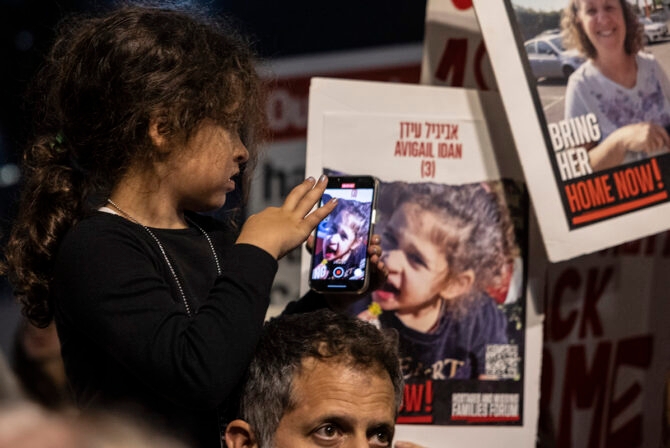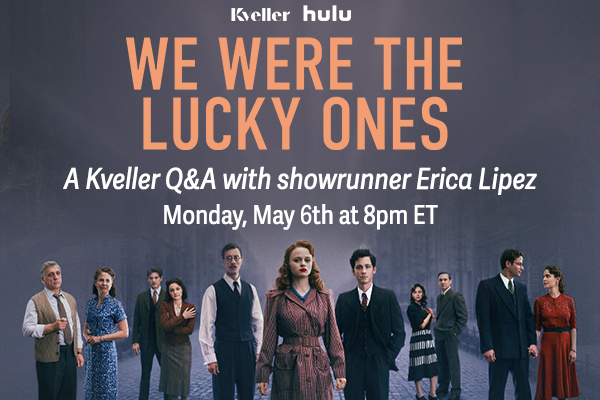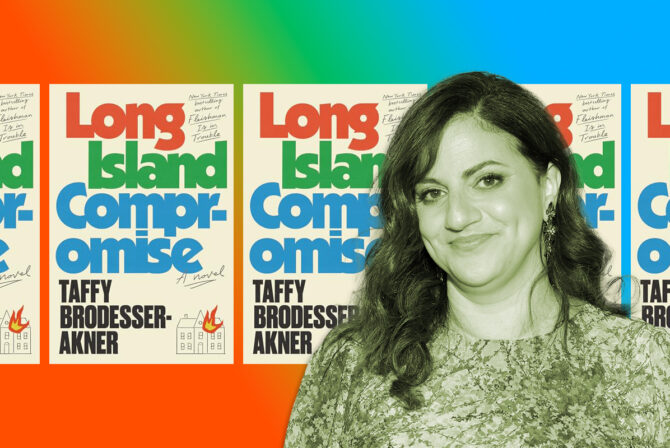I was sitting in my office last Friday afternoon when I received a text message from the JCC: there was a bomb threat and the facility, where my son attended an after school program, had been evacuated. Everyone was fine. They’d let us know where the children were shortly.
As I catapulted my body in the general direction of the JCC, I was stressed. Stressed for the fact of the evacuation, stressed because of the anxiety the evacuation might have on my sweet child, and, if I’m being perfectly honest: stressed because the evacuation cut my workday short by about three hours.
I was concerned about my son’s safety, of course, but only nominally. The threat was “just” a threat; the evacuation was successful; everyone was fine.
“It was a scare, but that’s all,” I thought to myself. Yet I worried about the risk posed to my own child and other children, who did not deserve to be targeted. But which children actually do?
While I sped north, I could not help but think of what it means to be a Jew in this society at this moment in time, and the vast and various privileges afforded to my own son, even as he comes under direct and literal threat for his identity, for his social location, for his proximity to difference.
I felt uncomfortable with my position, as it forced me to reflect upon a harder truth: the recent threats to our JCC were frightening and horrific, but they came in the form of a warning. What about the children who don’t get a warning before they’re thrown against the ground or the bomb detonates? What about the children who only get a brick or bullet? A body slammed against concrete?
Will I write an essay for them?
In April 1984, in an essay for Essence magazine titled, “On Being White…and Other Lies,” James Baldwin described the problem of whiteness as such:
“But this cowardice, this necessity of justifying a totally false identity and of justifying what must be called a genocidal history, has placed everyone now living into the hands of the most ignorant and powerful people the world has ever seen: And how did they get that way? By deciding they were white. By opting for safety instead of life. By persuading themselves that a Black child’s life meant nothing compared with a white child’s life.”
I bristle at this comparison, and find myself defensive. Have I persuaded myself that a black child’s life meant less than my own son’s? Have I opted for safety instead of life?
European Jews paid for our whiteness, and the price of the ticket was the abandonment of our moral authority. But silent costs were enacted as well, some of which brought me to the JCC early and irritated on that Friday afternoon: I have been implicated by my attachment to safety.
Why is safety a problem? Isn’t it good to aspire to safety? Shouldn’t we desire it?
When we are seeking our safety vouchers, it’s important to recognize that safety is not equitably dispensed. By virtue of my race, class, and citizenship, I am possessed of a measure of safety that many will never be able to access. Still, I recognize something greater: my safety is predicated on the notion that this is what I deserve, even as it eludes others.
And even in spite of all this, I recognize that I am a woman and I am a Jew, and the idea that I am safe is a lie. If the decision to blend in as white in exchange for safety is a cowardice, what is not lost on me is the fact that as Jews, we were never fully safe. Over the long course of history, and throughout the world, Jews have been subject to discrimination, exile, and annihilation. And in the United States, in 2017, Jews are first ranked on FBI’s most recent list of religious-based hate crimes.
Safety is an illusion as much as it is a function of privilege, and the current political moment does nothing if not unshield us. If we are to achieve anything, we must remove these masks which never protected us anyway. We must dismantle the systems that deny humanity to some, relegating communities to the margins while centering others.
My son attends a Jewish day school, and this should not frighten me. This should not, as Avital Norman Nathan recently, be an act of bravery. It should not: everyone agrees it should not. But the fact is that it is. And what am I owed for that particular risk, when there are parents whose children are threatened for the bathroom they use, the embossment on their passport or the color of their skin? Can I really be settled when I think about the violence of everyday life that is enacted in my name? I am not to blame, but I am nevertheless responsible.
Anti-Semitism is real and affects me personally, and I decry it. It affects many more in many more intense ways and I decry that, too. But where are we when our neighbors are silenced, dehumanized, threatened? Where are we when our children’s classmates, our neighbors, and our friends are expelled from their schools; pushed against the grill of their vehicle and told not to make a move; thrown down on pavement, unable to breathe; imperiled for existing? Can we do nothing?
We will never be safe, so long as we acquiesce. I recognize that my risk, freely undertaken, comes from having the agency, the capital and the discretion to send my child to a Jewish day school and afterschool program. I wake up in the morning and I remember the words of Rabbi Nachman of Bratislav: “The whole world is a very narrow bridge; the important thing is not to be afraid.”
We have an obligation as Jews to stand for ourselves, but this is no less urgent than our moral imperative to stand for others, for whom streets are never safe and cities are seldom sanctuaries. I was not sure of the correct course of action as I sped toward my son on that day last week, and I was no more certain of it as I stood vigil in the freezing cold outside my JCC on Thursday alongside my son and hundreds of others.
I am not sure of the correct course of action now. What I know: we are in the depths of winter, but springtime will soon be upon us. And we are in the present, which is to say: the right place at the right time to do something.







